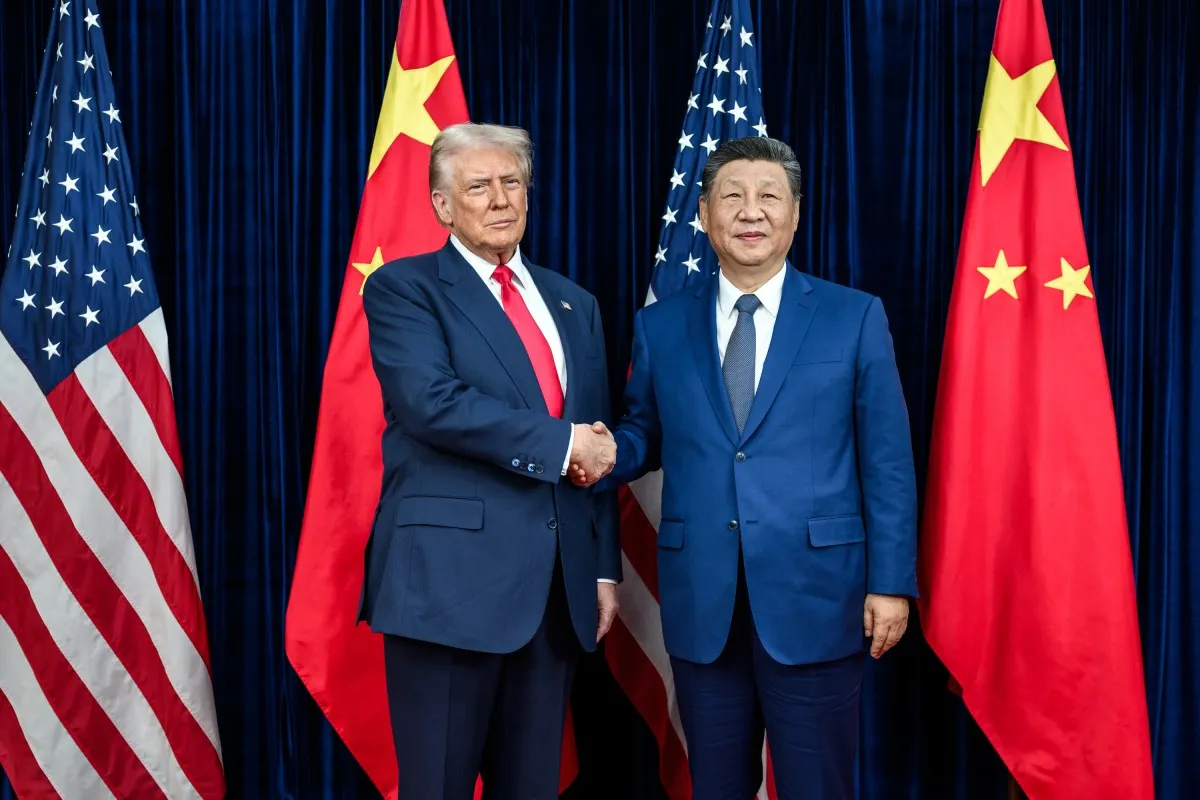Donald Trump Restricts Nvidia's Blackwell Chips from Export to China

US President Donald Trump has reiterated a strong stance against the sale of Nvidia's cutting-edge Blackwell artificial intelligence chips to China. In recent remarks made during a taped interview with CBS's 60 Minutes and comments to reporters on Air Force One, Trump stated unequivocally, "We cannot sell them to China. We cannot sell them to other people." This statement underscores concerns regarding China's access to advanced technologies, particularly in the rapidly evolving field of artificial intelligence (AI).
The Blackwell chips are among Nvidia's most advanced processors, designed to facilitate complex AI applications, including large language models and sophisticated data processing systems. Nvidia's prominence in the AI sector has recently been bolstered by its market capitalisation exceeding $5 trillion, establishing the company as a pivotal player in the global AI supply chain.
Trump's comments reflect escalating worries within the US government regarding the potential implications of allowing China access to such powerful technologies. The Biden administration has already implemented export controls on high-performance chips, and Trump's remarks suggest a tightening approach towards Nvidia's most advanced products. He emphasised the importance of safeguarding these technologies, stating, "These are super powerful chips. We’re not going to let them fall into the wrong hands."
Nvidia's Blackwell chips are classified as sensitive technology by the US government, particularly due to fears they could be used in military and surveillance applications by China. In contrast, South Korea, a US ally, is not subject to the same restrictions, and Nvidia has recently announced plans to supply over 260,000 Blackwell chips to several major South Korean companies, including Samsung Electronics.
The South Korean government has prioritised the development of AI technologies as part of its national strategy, aiming to create a robust ecosystem capable of competing with global technology hubs. According to a government spokesperson, “Just as Korea’s physical factories powered industrial growth, these AI factories will drive digital transformation.”
As tensions continue over technology transfer and national security, the implications of Trump's policy could significantly alter the landscape of AI advancement. Experts warn that if the US allows the export of advanced chips to China, it could jeopardise US technological superiority in AI, with predictions that China could surpass the US in AI computing power by 2026.
However, if the US maintains its restrictions, it is estimated that American companies will hold a significant advantage in AI capabilities, maintaining approximately 30 times the computing power of China. In the face of these developments, Chinese companies such as Alibaba and ByteDance have expressed concerns that without access to Nvidia’s chips, their AI advancements could stagnate, impacting China's competitiveness in the global technology race.

ED Seizes ₹7,500 Crore in Assets Linked to Anil Ambani Group Amid Money-Laundering Probe

Pine Labs Awards ₹243 Crore in ESOPs to CEO Amrish Rau Ahead of IPO

Bharti Airtel Q2 Results: Revenue Rises 25%, ARPU Gap Widens Over Reliance Jio

Apple Plans Major Overhaul of Siri with Google Gemini AI by 2026





